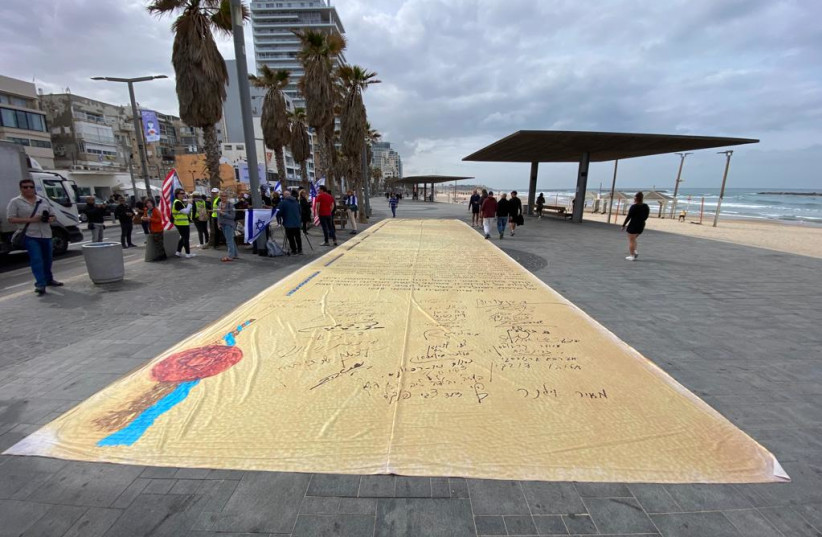Dual American-Israeli citizens called for the US government to oppose Israel's judicial reform in a demonstration in front of the US embassy branch in Tel Aviv on Tuesday morning.
Protesters waved American and Israeli flags as they chanted "This is not what democracy looks like."
Signs called for help from US President Joe Biden, and declared "Democracy now," and "Israel will not become the Taliban."
Demonstrators unfurled a massive copy of Israel's Declaration of Independence, which covered a large stretch of road by the diplomatic building. The document has become a rallying banner for anti-reform protests in past weeks.
"Standing against this government's policy is not standing against Israel, but standing with Israel!" said Keren Mor, a protest organizer. "It is already clear that if the coup goes through, the friendship between the countries will be damaged, it must not be allowed to happen."

American officials have made only a few measured comments about the reforms.
In a late January meeting with Israeli President Isaac Herzog, US Secretary of State Antony Blinken said that support for democratic principles, institutions, rights, protection of minorities and rule of law were values shared by both countries.
"The commitment of people in both our countries to make their voices heard, to defend their rights, is one of the unique strengths of our democracies," said Blinken. "Another is a recognition that building consensus for new proposals is the most effective way to ensure they’re embraced and that they endure.”
In February US Ambassador to Israel, Thomas Nides more directly address the reforms on a podcast, advising Israeli leaders to slow the process, but also acknowledging that the US couldn't tell Israel how to select judges.
"Slow down, try to get a consensus, and bring the parties together," said Nides. "it's very complicated, they're trying to do things way too fast."
Diaspora Affairs Minister Amichai Chikli castigated Nides for his remarks.
"I say to him, slam the breaks yourself and mind your own business," Chikli said. "We'd be happy to debate with you in international or security affairs, but respect our democracy."
Jerusalem Post Staff contributed to this report.
